



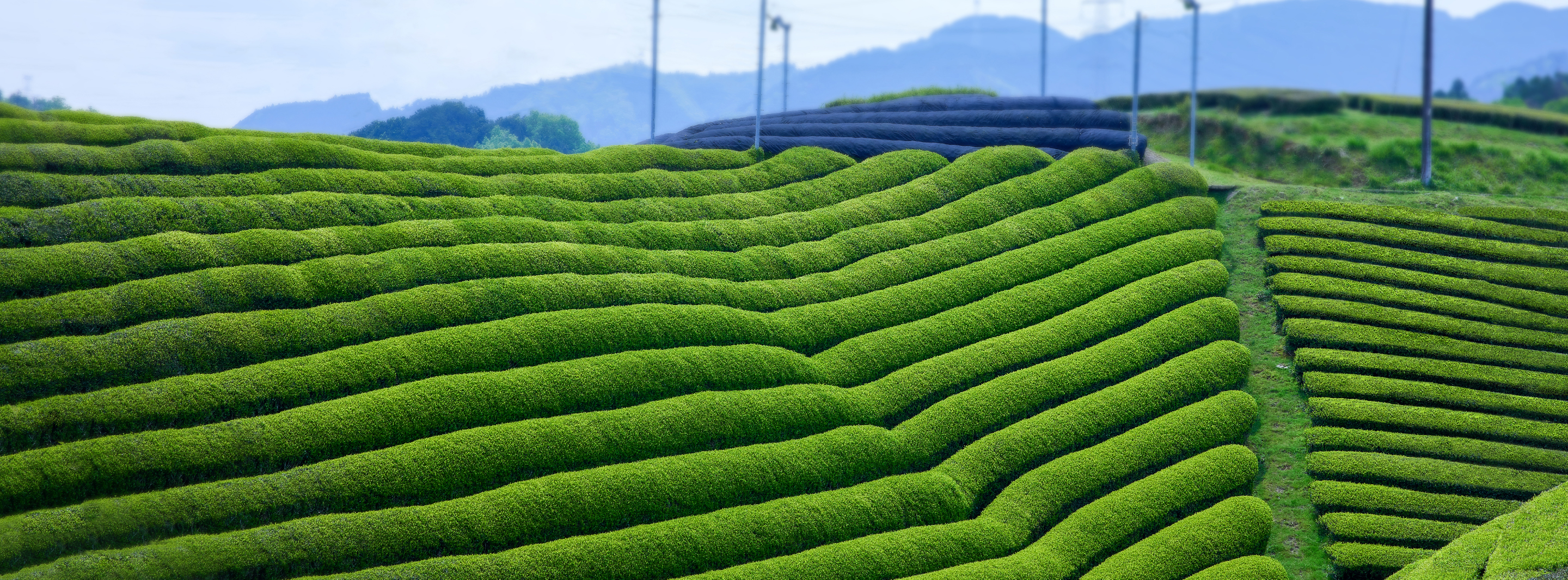
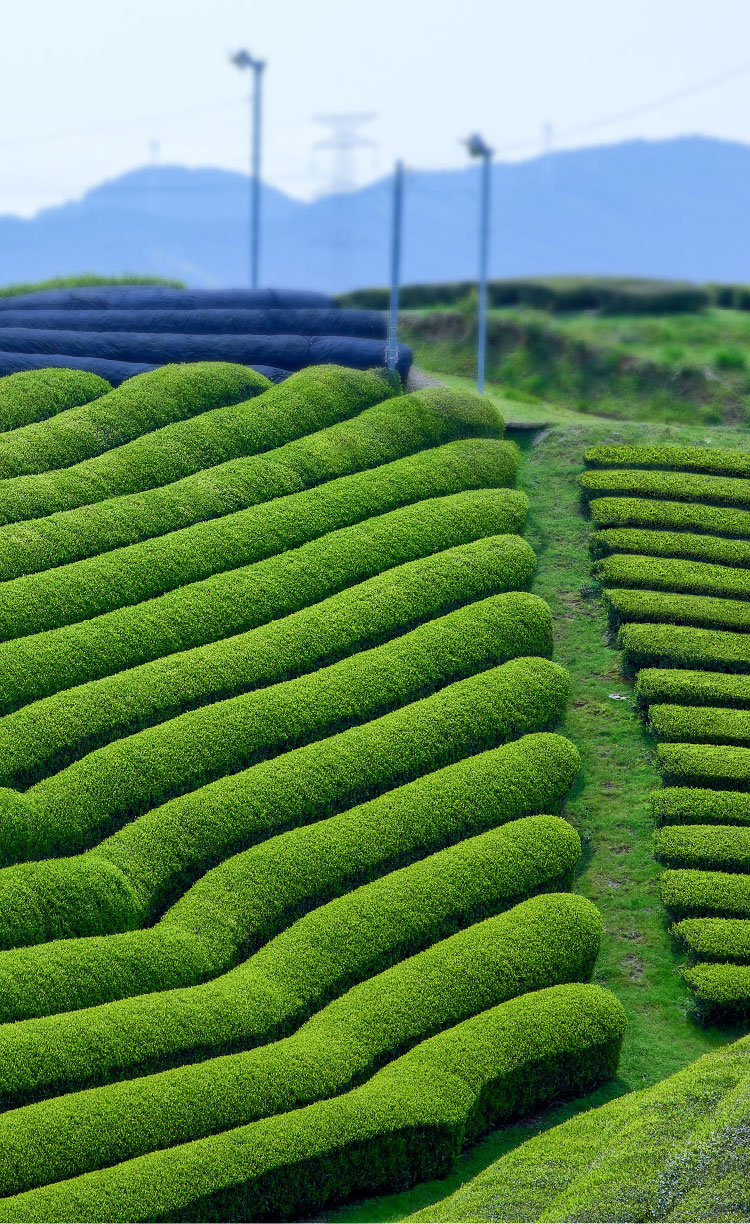
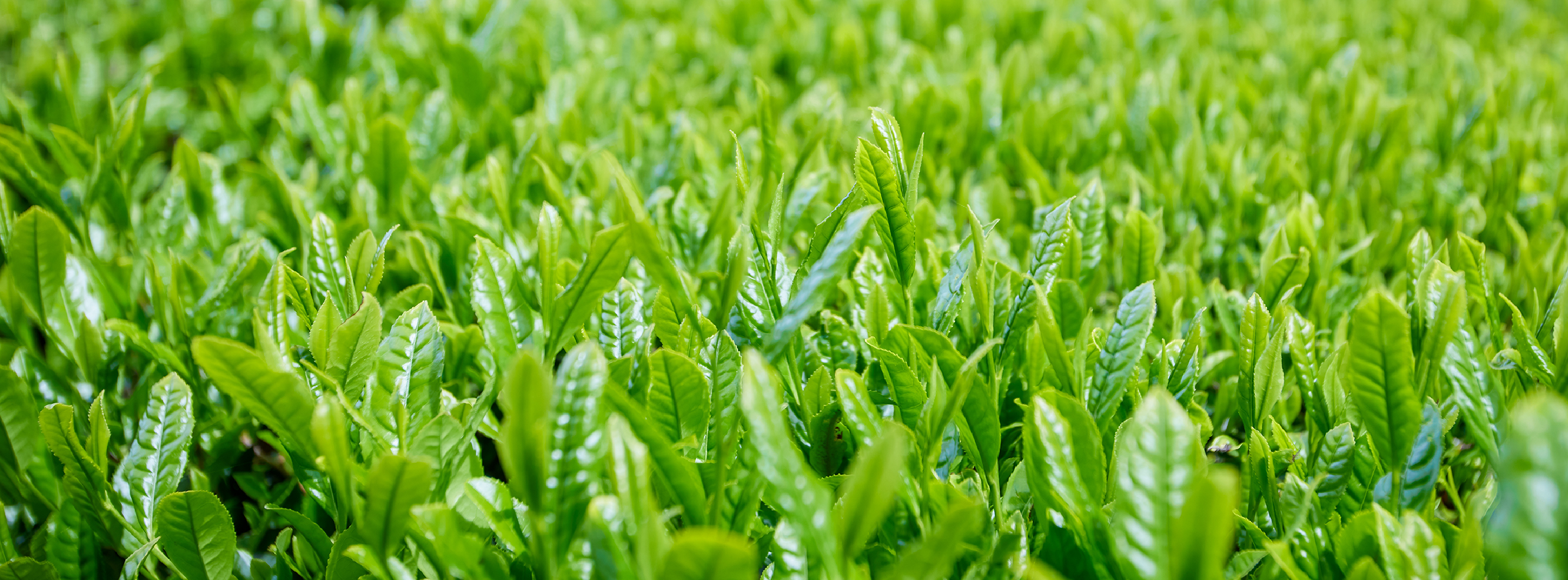
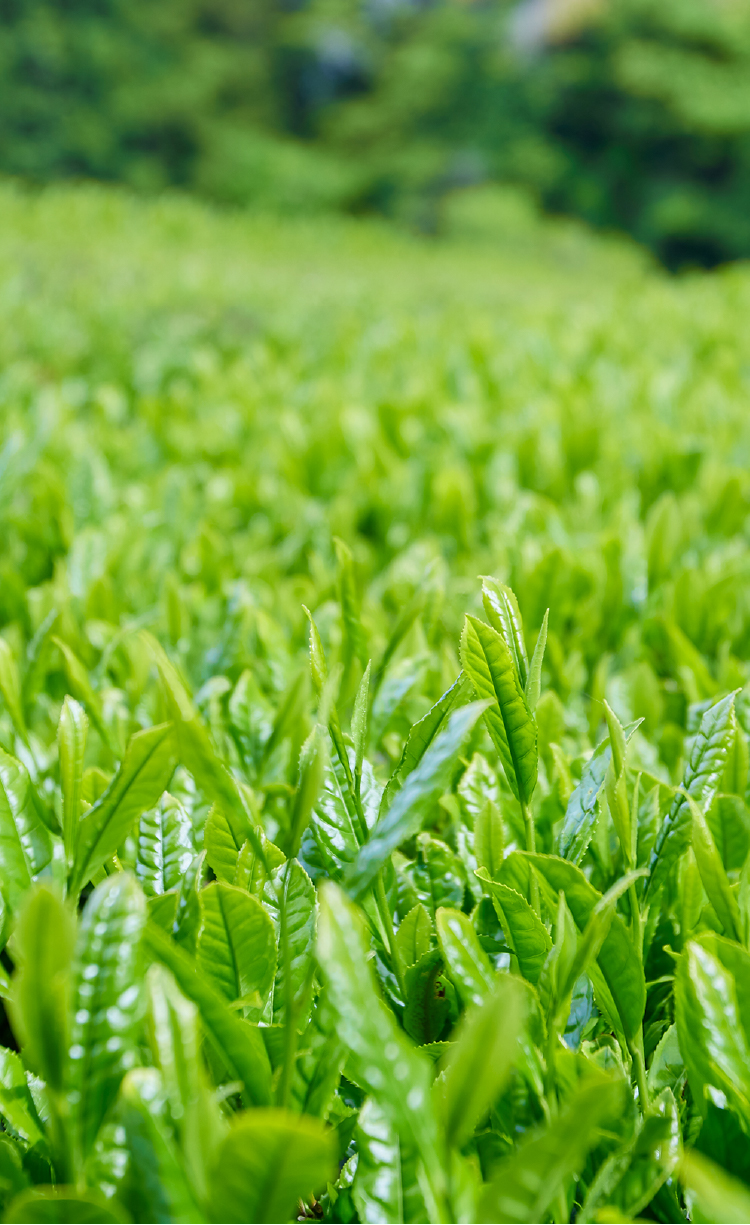
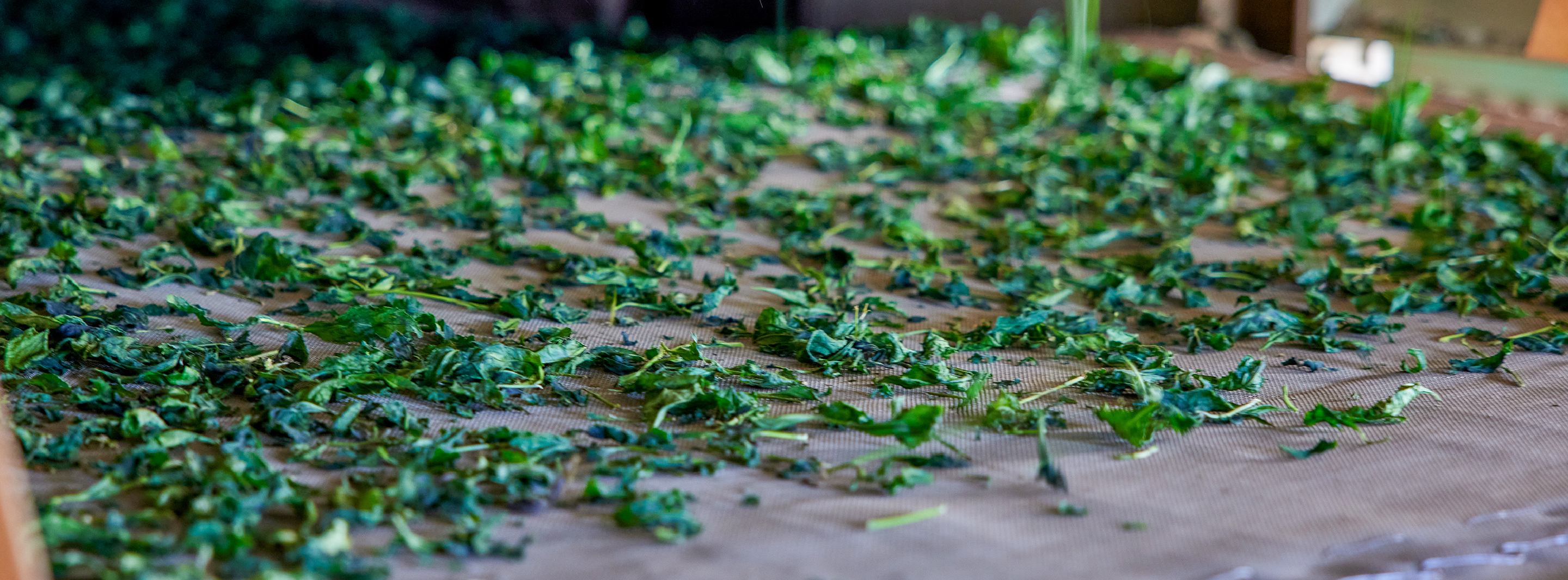
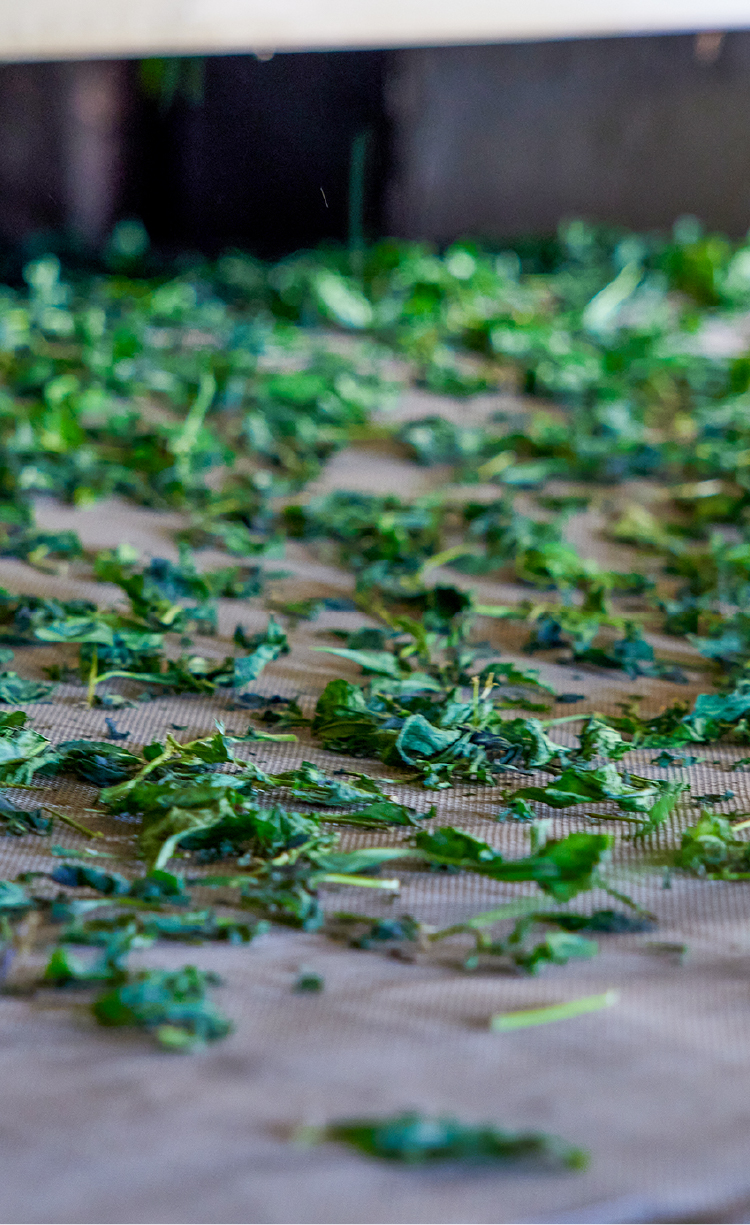
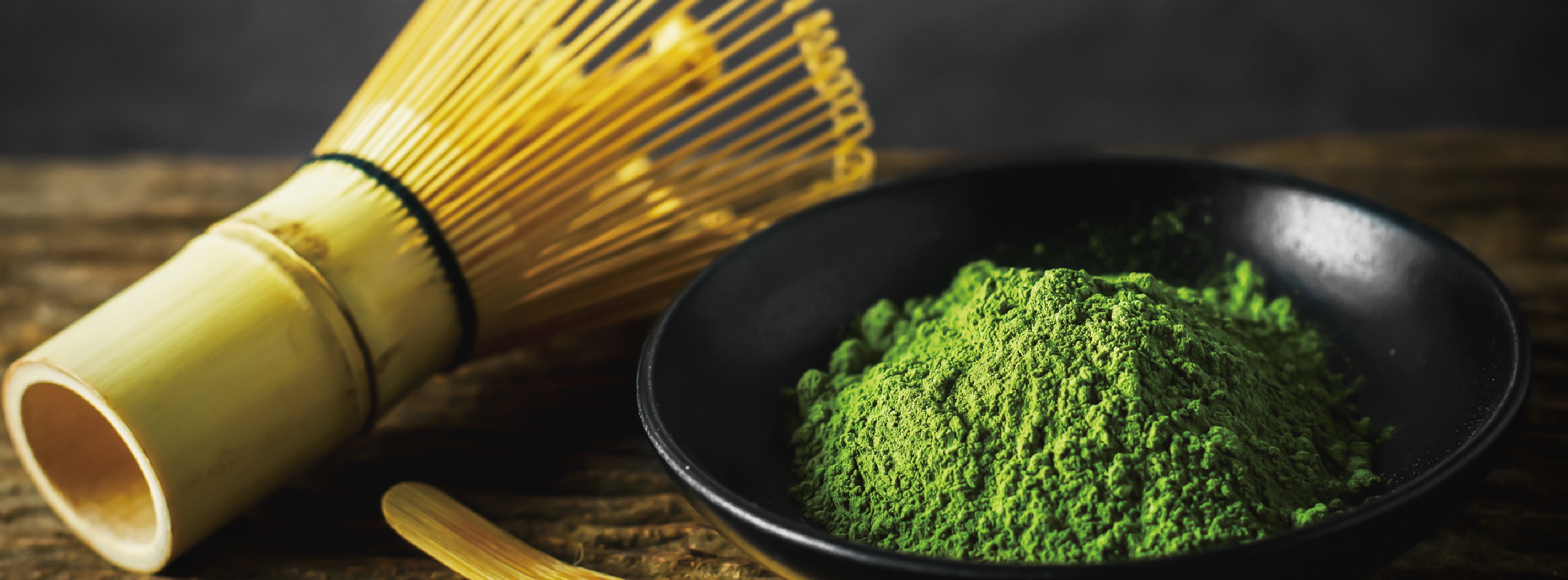
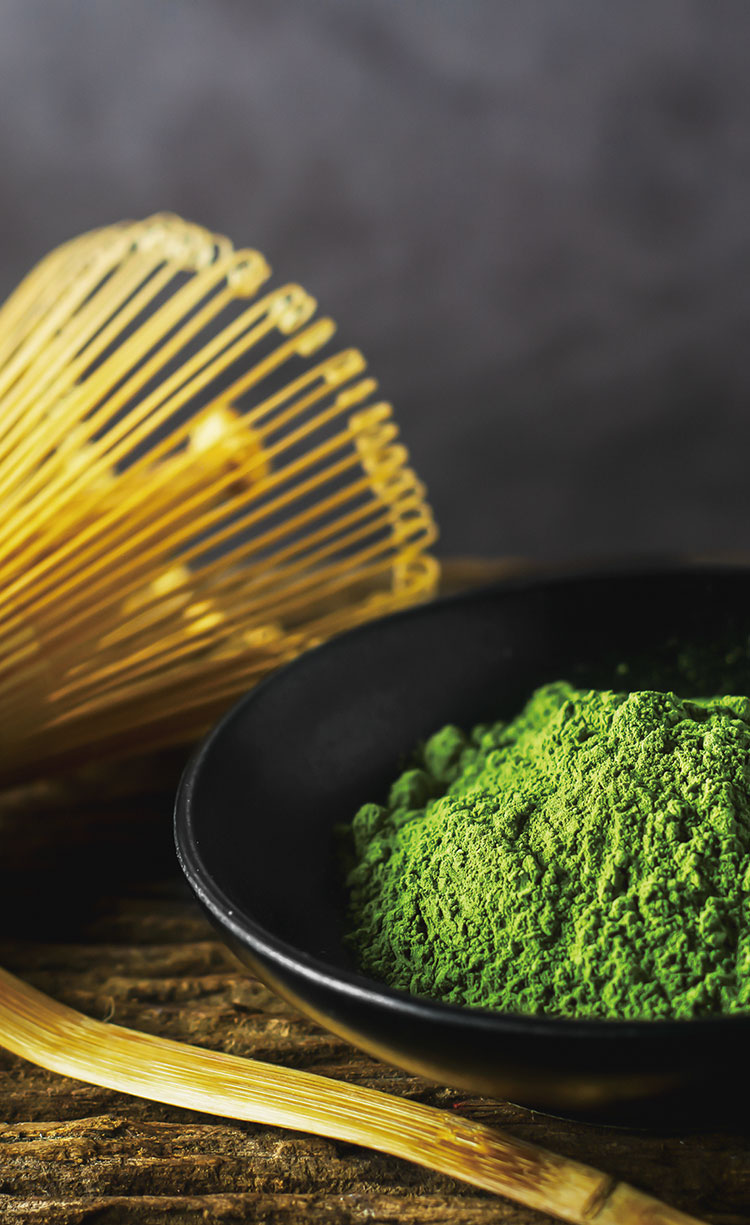
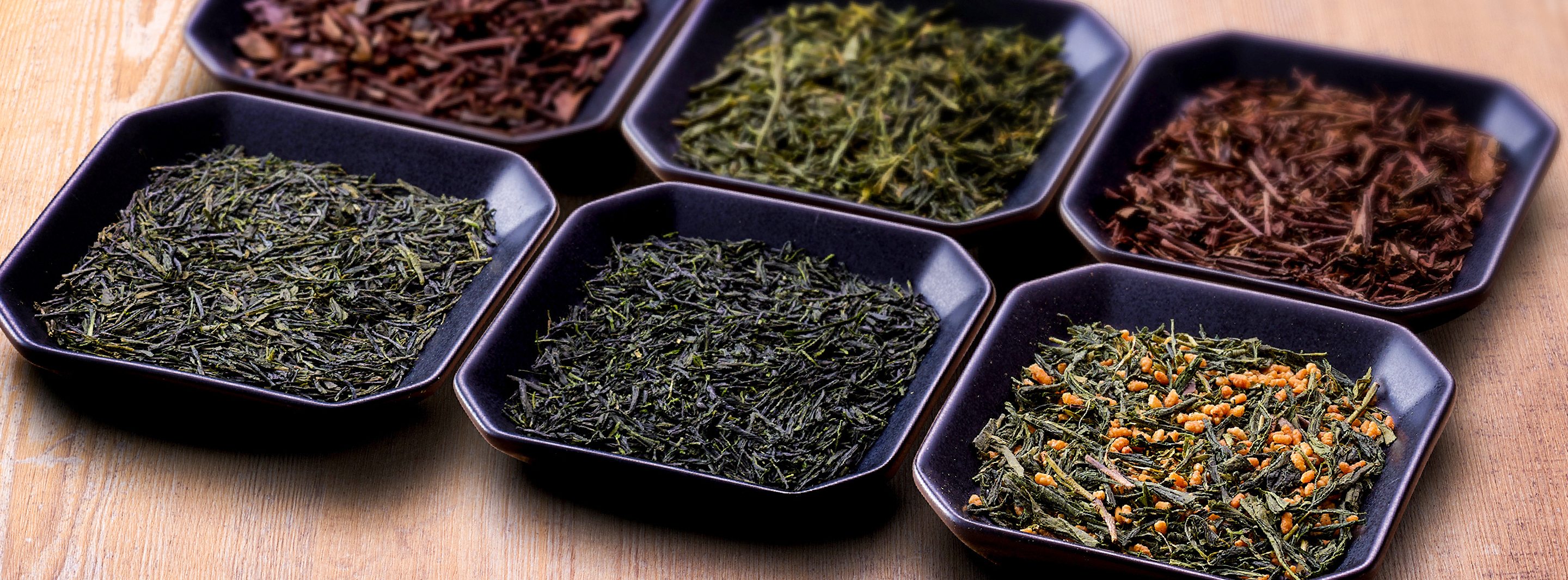
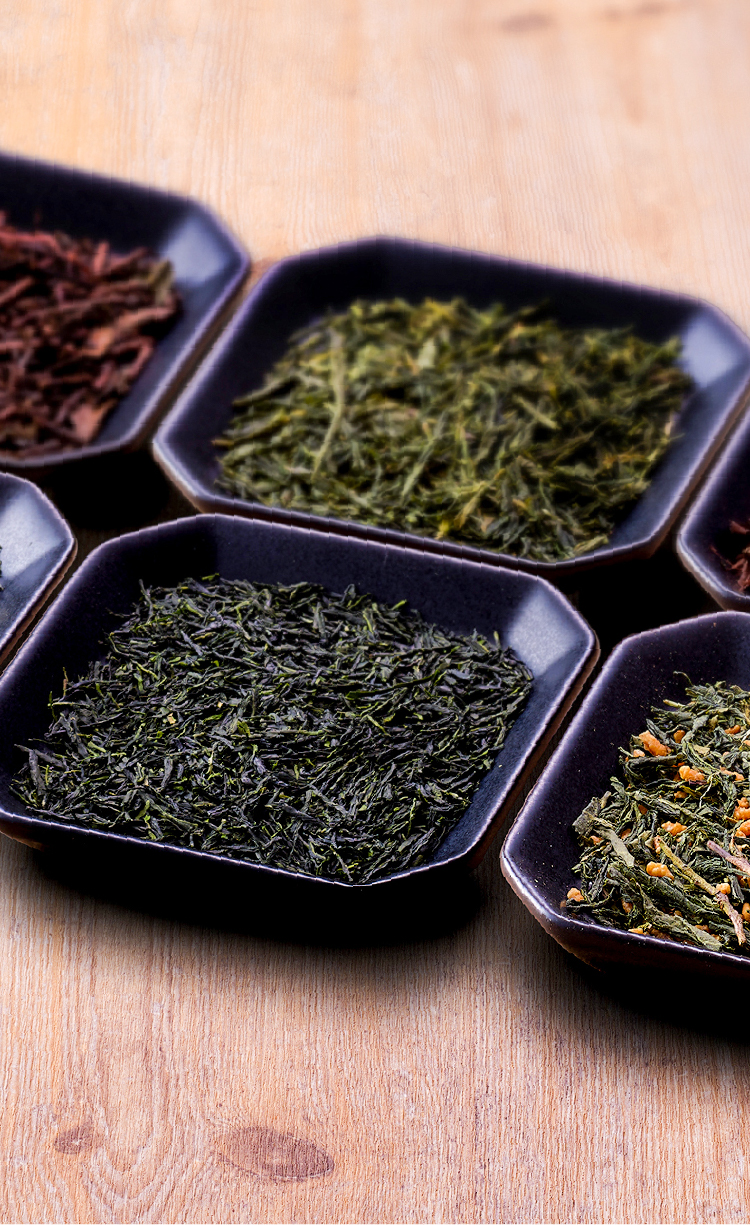
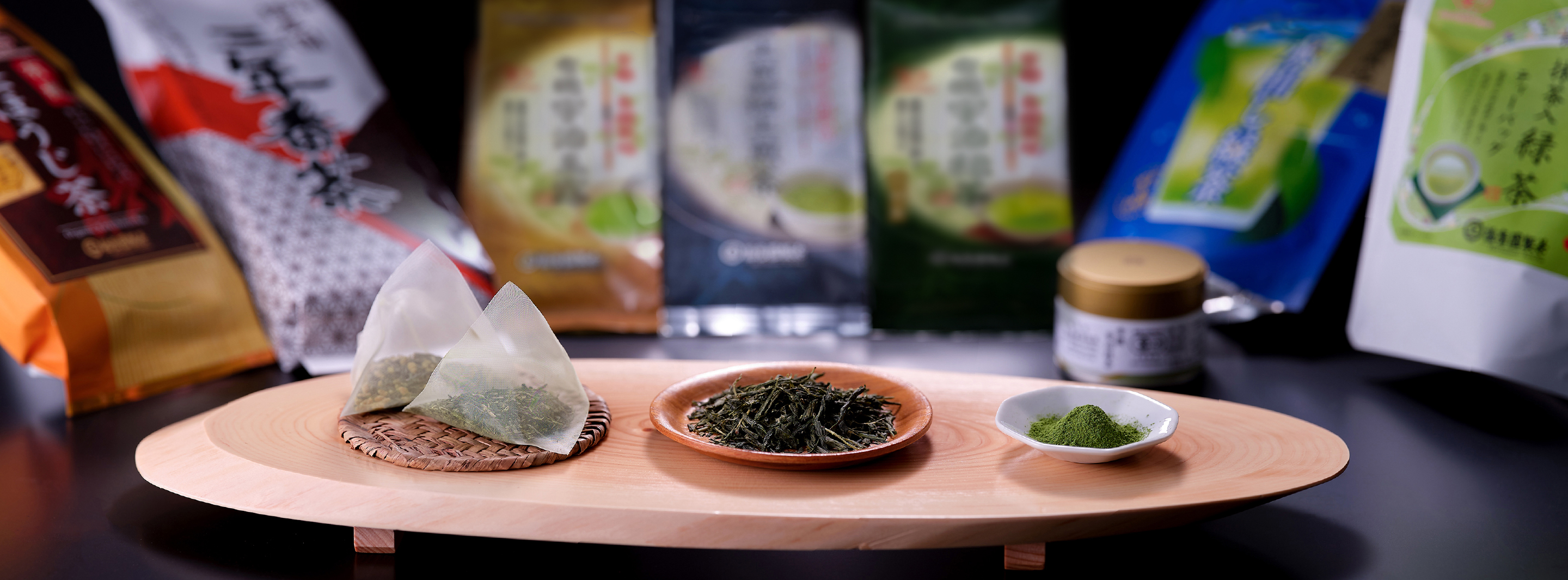
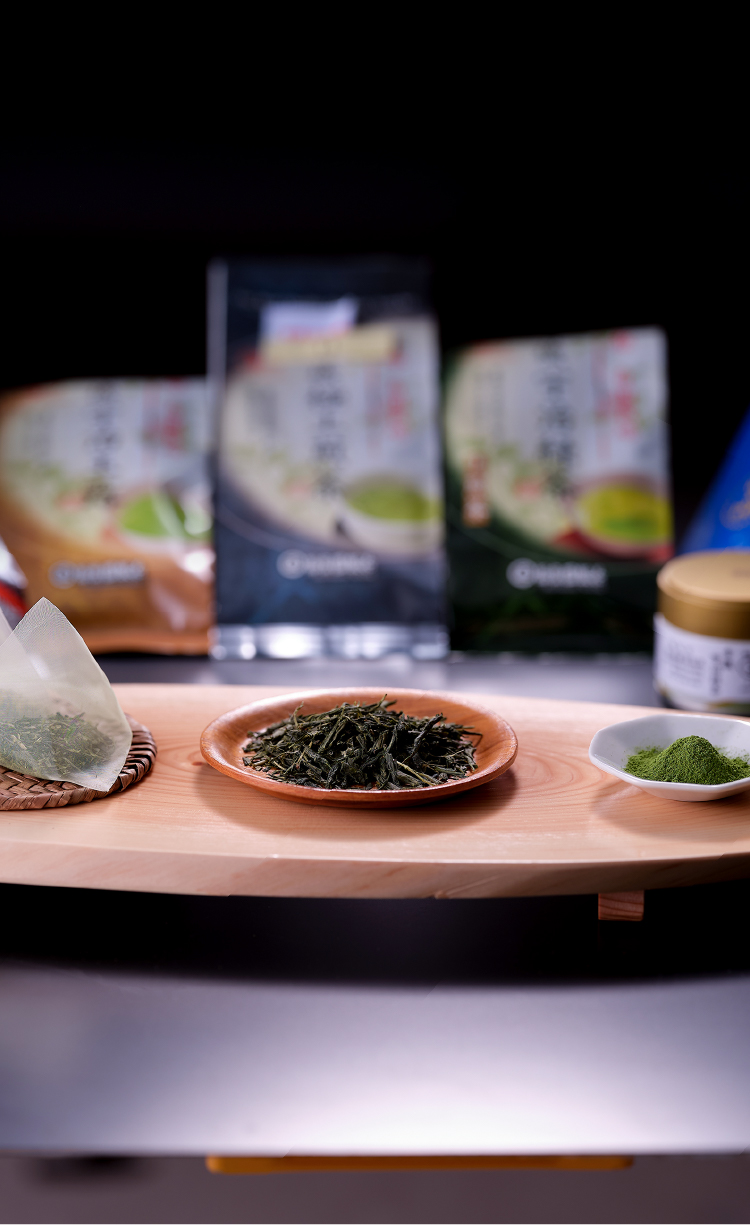
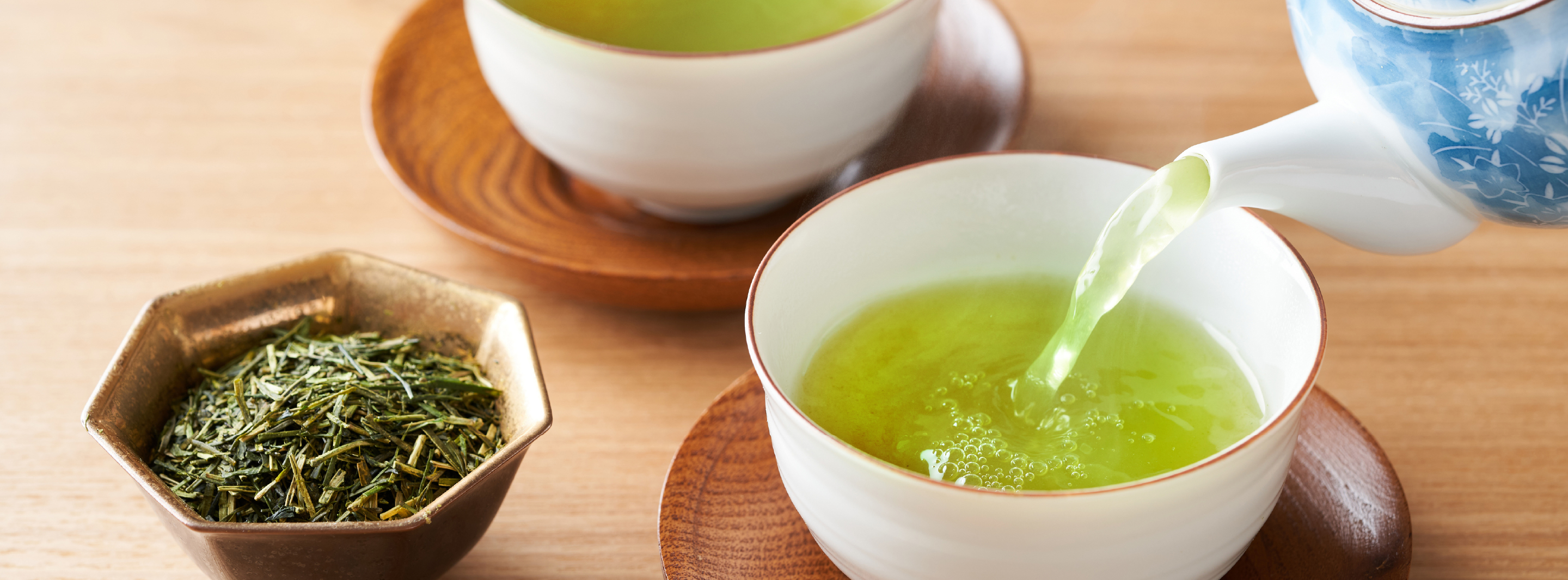
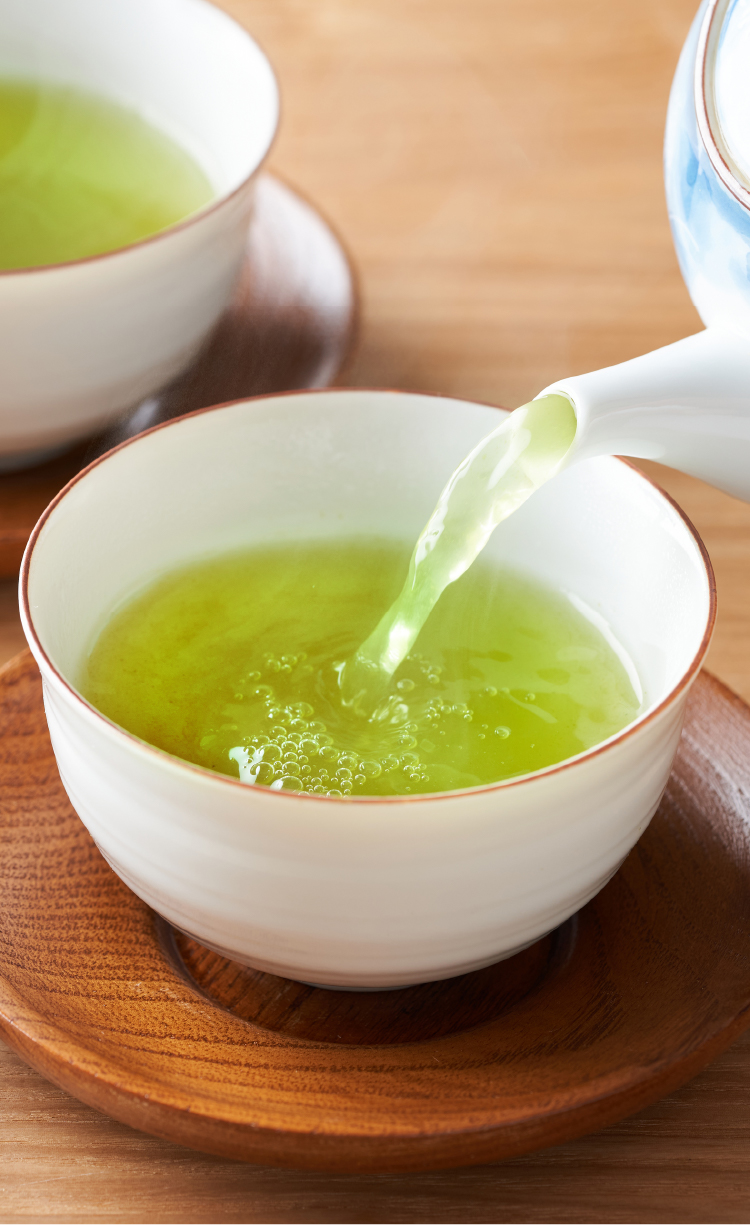
The town of Ujitawara, where Uji tea is made and the birthplace of Japanese green tea, is located in an undeveloped natural valley, about 250m above sea level.
Significant morning and evening temperature differences, misty weather and extremely permeable calcic soils make the area ideal for farming tea.We try to maximize the benefits of Nature itself and use no agricultural chemicals. This and using only organic fertilizers allow us to grow safe and reliable organic products.Please try the flavorful tea we have grown and created with the utmost care.
In recent years, it's hard to ignore the fact that the world is experiencing a great number of natural disasters and we see the effects of unexpected climate change in our daily lives. Technology is improving more and more, but most progress is made in pursuit of our convenience and comfort.
Instead of sacrificing the Environment for our comfort, I feel that we need to change our direction and strive to create a perfect harmony of coexistence between humanity and nature. This idea is why I started my endeavors toward "no agricultural chemicals or synthetic fertilizer farming (organic farming)" 35 years ago. I remember in the Showa 30's era (mid 1950's) that there were freshwater fish, such as killifish, dark sleeper, goby and so on, abounded in the river I frequented. But during the Showa 60's (mid 1980's) it seemed that I no longer saw any of these fish, as if they had completely vanished. However, about 10 years ago, I started to find fish again in the same river and I felt perhaps our use of eco-friendly agricultural chemicals and fertilizers were having a positive effect on the local ecosystem.
I really hope our efforts have a positive impact, even if only a small one, on keeping our earth healthier though raising the standard of environmentally friendly sustainable farming.
We are committed to not only preserving our beautiful land and providing safe, high quality products to our consumers, but also educating our own families and workers in order that we can continue to produce safe and satisfying organic tea everyday. I truly believe in this and it is my sincere hope that the longevity of our people will continue through the organic health movement.
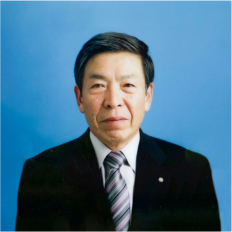
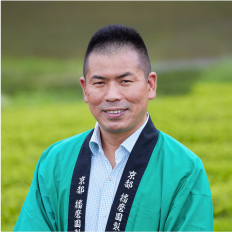
representative

Yoshiyuki Harima
managing director

Yukihiro Harima
| Company name | Harimaen Seicha Co.,Ltd. |
|---|---|
| Headquarters Factory | 20‐1 Okuyamada Mandokoro Ujitawaracho Tsuzukigun, Kyoto Japan 610-0211 |
| TEL | 0774-88-3183 |
| FAX | 0774-88-3881 |
| Operations | Since 1901 (Meiji 34th year) |
| Established | February, 2003 |
| Capital Reserves | 10,000,000 yen |
| Representative | Representative Director Harima, Yoshiyuki |
| Business Content | Cultivation, production, manufacture, processing,
wholesale trading on site at our JAS certified tea plantation (approx. 6 hectares) |
| Products | Various organic teas (sencha, Maccha green tea, Powdered tea, 3 year Bancha,
Roasted brown rice tea, Hojicha, Ingredients for Green tea mix) and regular (non organic) teas. |
| Professional Affiliations | NPO All Japan Health & Natural Foods Association (NPO Zenkenkyo) National Tea Commerce & Industry Group Association Tea Cooperative Association of Kyoto Prefecture Chamber of Kyoto Prefecture Tea Public Interest Incorporated Association Uji Taxation Association Uji Tawaracho Chamber of Commerce |
| Banking Affiliates | Kyoto Bank (Ujitawara branch) Mitsubishi UFJ Bank (Kyoto branch) Mizuho Bank (Fushimi Cyuo branch) |
| 1858 (Ansei 5th) | Second generation of the Harima family: Harima, Sakuzaemon cleared a portion of the mountains in the family estate and started to cultivate tea. |
|---|---|
| Meiji Era | Fourth generation of the family: Fujitaro stated to retail tea leaves in Meiji era. |
| Showa 30 (1950's) | Fifth generation of the family: Shohe began wholesaling in Showa 30th year. |
| Showa 47 (1972) | Sixth generation of the family: Yoshiyuki fell ill due to chemical poisoning one day in August while spraying pesticides. Since then part of the plantation was designated to be free of chemicals or artificial fertilizers and the size of this section expand over time. |
| Showa 57 (1982) | The family turned the whole farm into an organic tea plantation in Showa 57th year and started sales in department stores, specialty stores, co-op groceries, and through direct marketing on regional TV and radio. |
| Heisei 11 (1999) | In May, when the Emperor and Empress attended the opening ceremony for the Shimanami Kaido (The Nishiseto Expressway), they enjoyed our organic tea as a part of their accommodation. |
| Heisei 13 (2001) | We received the Ministry of Agriculture, Forestry and Fisheries' Organic JAS certification. |
| Heisei 15 (2003) | FA (Full Automation) tea production factory is built. |
| Heisei 19th (2007) | We acquired USA Organic NPO (Currently recognized as the American equivalent of the Japanese organic systems.) |
| Heisei 21 (2009) | In April, we acquired Organic ICEA (Currently recognized as the EU equivalent of the Japanese organic systems.) |
| Heisei 25 (2013) | Management Improvement project Kyoto prefecture Governor certification is acquired. |
| Heisei 26 (2014) | We were registered as a Kyoto Prefecture Organic Farming Advisor. |
| Heisei 28 (2016) | We were selected as a winner of the Vibrant HABATAKU Small and Medium Enterprises 300 Program by the Ministry of Economy, Trade and Industry’s Small and Medium Enterprise Agency. |
| Reiwa 2 (2020) | We have obtained the Food Safety Management System Standard. |
| Reiwa 3 (2021) | In October, Yukihiro Harima was appointed Managing Director |
| Reiwa 4 (2022) | In September, we received GlobalG.A.P. certification |
| Reiwa 5 (2023) | In October,head office relocated |
| Reiwa 6 (2024) | We have obtained the Food Safety System Certification. |